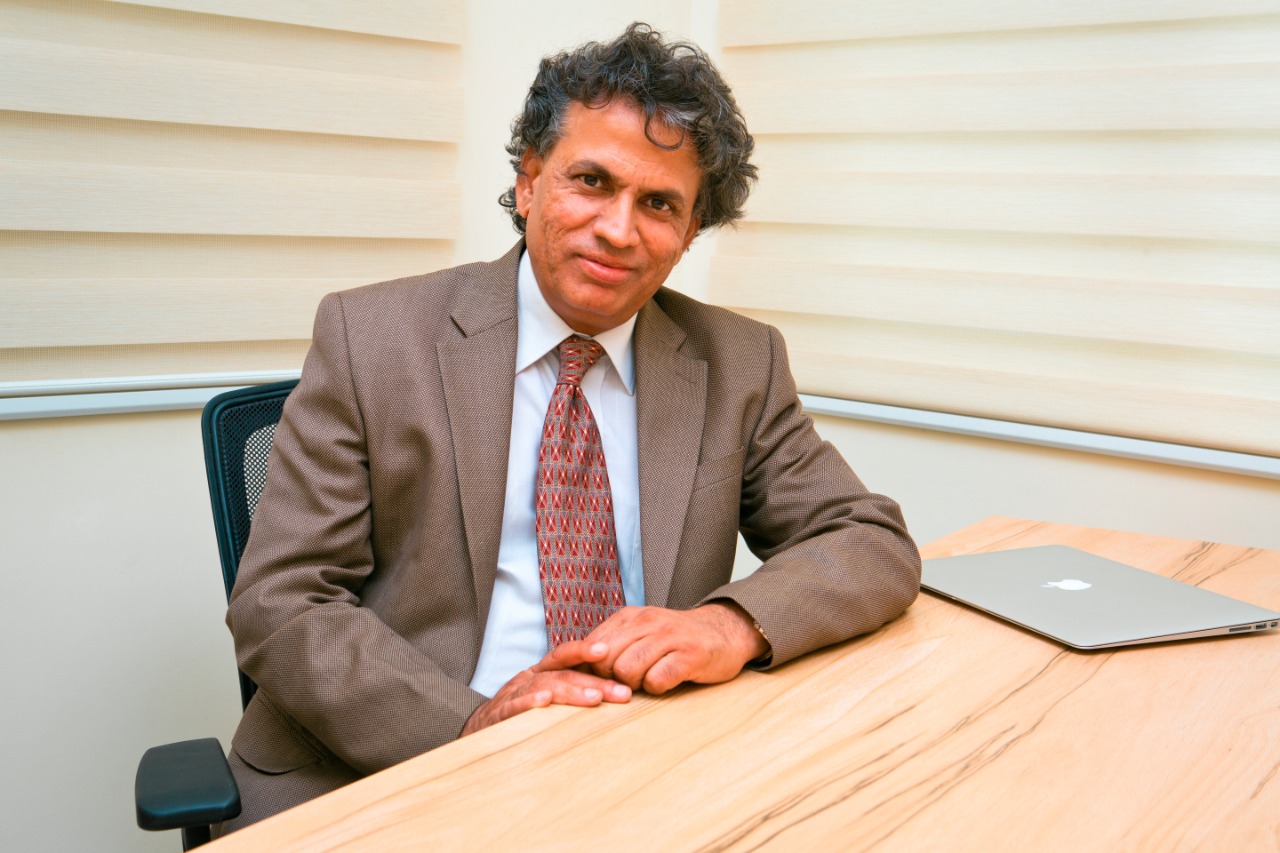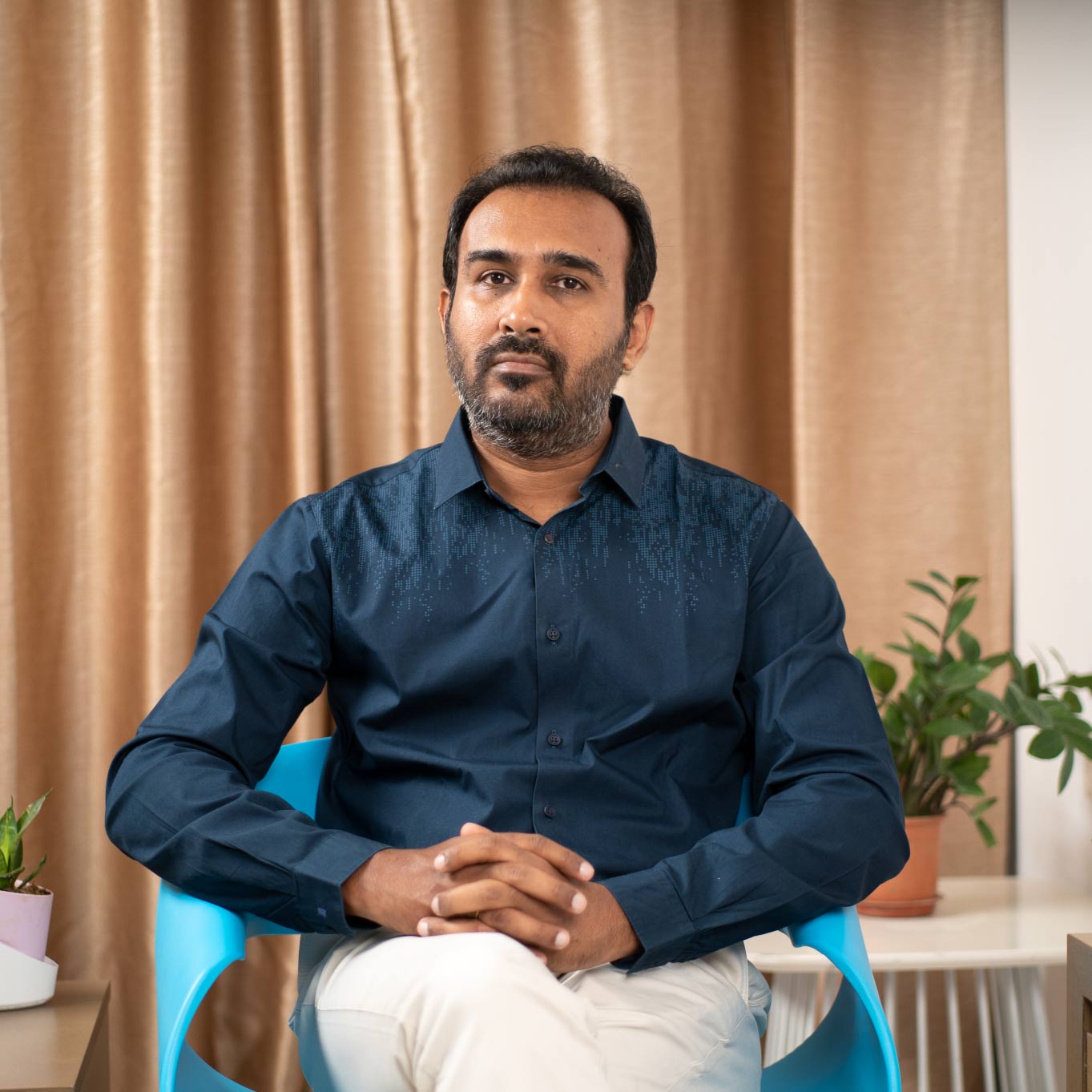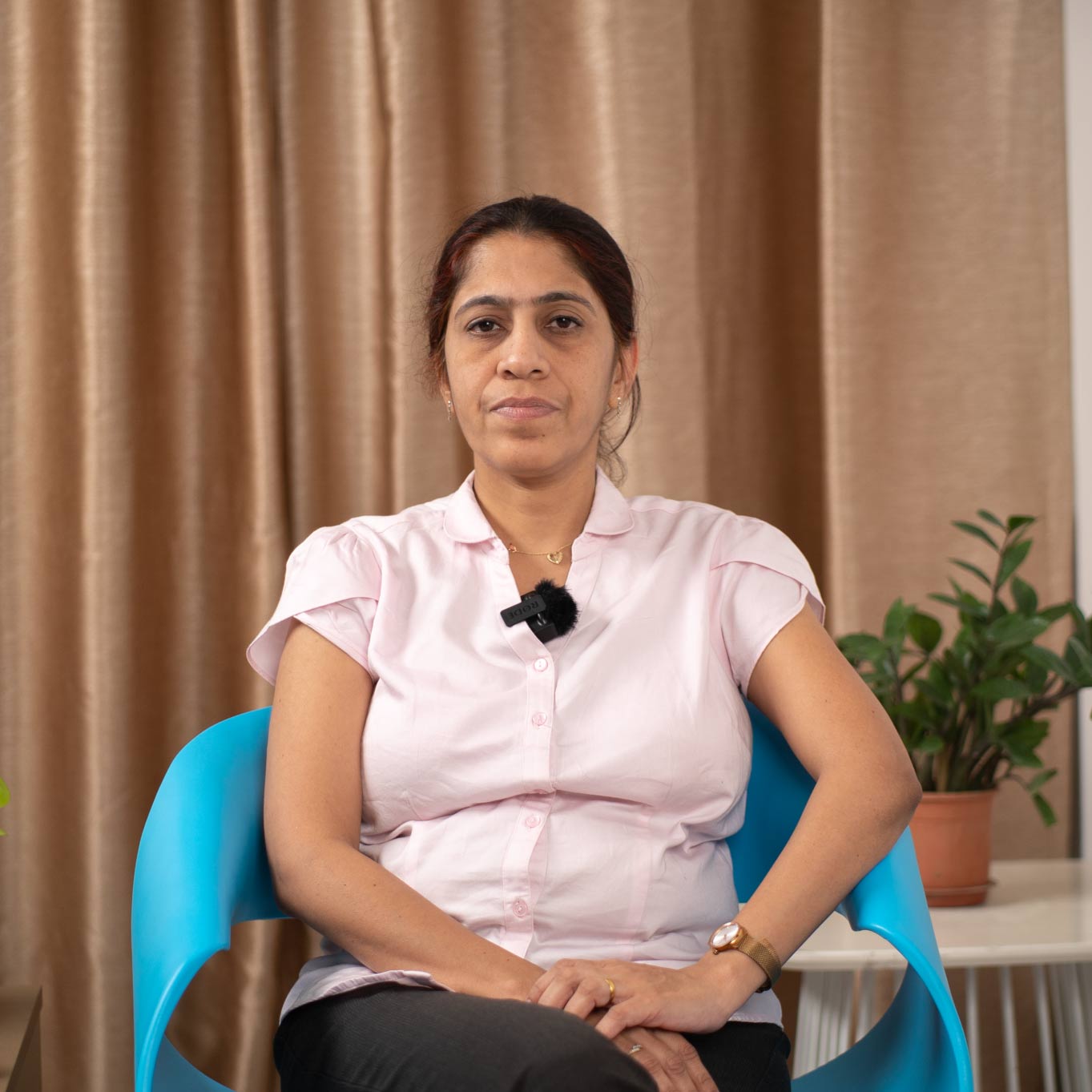Addressing OCD Emergencies Effectively in Hyderabad
When someone has OCD, their ability to function during a crisis might be severely hindered, and their challenges may become more severe. Remaining composed and implementing crisis intervention will help to reduce the situation. Otherwise, if left untreated or not appropriately managed in a timely manner, an OCD attack can quickly get worse.
Professionals at Cadabam’s Hyderabad have extensive experience in treating OCD for years; we have served people with complex conditions at critical moments.
Our compassionate team offers crisis intervention instantaneously and long-term support to ensure the best care possible.
Understand OCD: Causes and Impact
OCD is a chronic disorder characterised by persistent, unwanted obsessions (recurrent intrusive thoughts) and compulsions (repetitive behaviours or mental acts performed to alleviate anxiety). This condition often disrupts a person’s ability to perform daily tasks, causing significant psychological distress.
The causes of OCD are multifaceted and not completely understood. However, understanding potential triggers is important for providing effective treatment during an emergency.
Some of the most common causes of OCD include:
- When one is exposed to unpredictable life events like losing their job, a close relative may have died, or one might have to leave home. Such significant life changes contribute to obsessive thoughts as well as compulsive behaviours.
- Individuals with high work stress, either from the workplace or from personal issues, are affected by OCD.
- Pre-existing illness and fear related to one’s health can trigger obsessive thoughts and compulsive rituals.
- Previous trauma or abuse makes a person more susceptible to developing OCD.
- OCD can run in the family and have a high chance of developing if one of the family members or close persons has it.
OCD is not only a challenge to the afflicted person but hits the family system as well. Holistic support for the individual afflicted, as well as their family members, is needed to make effective treatment and recovery possible.
Key Signs of an OCD Emergency
While recognising the signs of an OCD emergency is crucial to ensuring timely intervention, not every individual experiences the same symptoms. It can vary, however; some common indicators include:
- Severe Obsessive Thoughts: Overwhelming intrusive thoughts that impair focus and functionality.
- Intense Compulsive Behaviours: Uncontrollable compulsive actions that interfere with daily activities and cause extreme exhaustion.
- Extreme Emotional Distress: Feelings of anxiety, frustration, or depression due to the inability to manage thoughts and compulsions.
- Social Withdrawal: Avoiding close relationships, family, or vocation because of fear of overwhelm by obsessions and compulsions.
- Suicidal Risk: Suicidal ideation or self-harm behaviour prompted by severe distress associated with the obsessions
Immediate Steps to Take During an OCD Emergency in Hyderabad
OCD emergency requires instant intervention to prevent further emotional distress. The following steps can help de-escalate the situation:
Staying Calm and Providing Reassurance
Be very calm and reassure the person that everything is safe and help is at hand.
Ensuring Safety for Everyone Involved
Remove any potential triggers or hazards from the environment to avoid escalating further.
Contacting Emergency Services Promptly
If there is a possibility that the person might harm themselves or others, call emergency services right away.
Avoiding Confrontation or Escalation
Confrontation can make the situation worse. Therefore, holding yourself and just distracting them can help reduce anxiety immensely.
Not Leaving the Individual Alone
Remain with them until professional help arrives so you do not abandon them in a distressed state that may heighten feelings of anxiousness and panic.
Emergency Services and Support for OCD in Hyderabad
There are a number of resources and other support systems available in Hyderabad. Find the nearest source for urgent assistance:
Local Emergency Resources for OCD
Besides Cadabam’s Hyderabad helpline, the city has some excellent hospitals and clinics that provide emergency psychiatric services and mental health care.
Psychiatric Emergency Services in OCD
The medical team at Cadabam’s Hyderabad handles OCD emergencies, keeping each individual stable and prepared for further treatment.
Post-Crisis Management for OCD in Hyderabad
Post-crisis care is also crucial for the person to remain stable and prevent future episodes. We approach post-crisis care by doing the following activities as outlined below:
Overview of Post-Crisis Phase of OCD
The healthcare professionals will evaluate the individual’s state and try stabilising their mental and physical health after the immediate crisis has been resolved. After that, the emphasis switches to managing symptoms and developing a long-term recovery strategy.
Assessment and Stabilisation of OCD
During the stabilisation phase, the medical staff will evaluate the individual’s mental health and, if required, administer medicine to control psychiatric symptoms.
Stabilisation typically calls for a mix of pharmaceuticals and therapy interventions.
Development of a Tailored Care Plan for OCD
We develop a customised care plan for each individual by combining medication, lifestyle adjustment, and therapies like CBT and ERP to decrease symptoms as much as possible and improve quality of life.
Family and Caregiver Involvement in OCD
Family plays a very prominent role in recovery. Here at Cadabam’s Hyderabad, we offer psychoeducation to the family so that they understand OCD better and support their loved one’s treatment through the recovery process.
Preventing Future OCD Crises in Hyderabad
The best way to prevent OCD crises in individuals is to take proactive steps like monitoring and intervention. Among the strategies are the following:
Regular Mental Health Assessments for OCD
Regular follow-up consultations with mental health professionals are necessary to catch the emerging issues early and act promptly.
Medication Management for OCD
Regular intake of medications helps reduce obsessive thoughts and compulsive acts, thus reducing the chances of future crises.
Continued Therapy and Support for OCD
Continuation of therapy, specifically CBT and community-based programs, can further support individuals to maintain recovery and prevent relapse.
Long-Term Recovery and Relapse Prevention for OCD
Ongoing therapy and changes in lifestyle help achieve long-term recovery and reduce the chances of future crises.
Find the Best OCD Emergency Care in Hyderabad
When selecting an OCD treatment emergency care facility, some key considerations should be addressed for the optimal outcome:
- Professional Team: Ensure a multidisciplinary team is in place with psychiatrists, clinical psychologists, and therapists who are knowledgeable about OCD treatment.
- Available Therapies: There must be accessibility to treatments such as CBT, ERP, medication management, mindfulness techniques, and family therapy.
- Reviews: Positive reviews from individuals and families report quality care, effective intervention, and client-oriented care.
- Other Considerations: Choose a facility with emergency care provided 24/7, as well as confidential and holistic support for both the individual and their family.
Cadabam’s: Leading OCD Emergency Care in Hyderabad
Cadabam’s Hyderabad provides treatment programs customised to individual needs with more than 30 years of experience in mental health care. We emphasise providing evidence-based, judgment-free, supportive care.
Expert Emergency Response Team for OCD at Cadabam’s
Our team of well-trained emergency responders is competent enough to handle OCD crises professionally and with empathy.
We act promptly to stabilise our individuals and care for them appropriately according to their unique needs.
Rapid Assessment and Intervention for OCD Emergencies
At Cadabam’s Hyderabad, our experts are experienced in the short-term management of emergencies. We intervene immediately to stabilise the individual and guide them towards the crisis so that they obtain care without further delay.
Advanced Facilities for Emergency Care in OCD
We at Cadabam’s provide facilities that are of the world-class standard, designed in such a way as to promote a safe and soothing environment to manage an OCD emergency effectively. Our infrastructure supports quick stabilisation and effective recovery processes.
Comprehensive Emergency Management Approach at Cadabam’s for OCD
We at Cadabam’s Hyderabad are committed to providing ongoing care. Following the current treatment regime, we offer family support, long-term therapy, and relapse prevention techniques to guarantee long-lasting recovery.
Top OCD Doctors at Cadabam’s Hospitals
OCD Psychiatrist in Hyderabad | OCD Psychologist in Hyderabad | OCD Therapist in Hyderabad | OCD Therapist in Bangalore | OCD Psychiatrist in Bangalore | OCD Psychologist in Bangalore
Rehabilitation Centres For OCD at Cadabam’s Hospital
OCD Rehab in Bangalore | OCD Rehab in Hyderabad
Best OCD Treatments Offered at Cadabams
OCD Online Counselling Hyderabad | OCD Online Counselling Bangalore | OCD PsychoTherapy Hyderabad | OCD Home Services Bangalore | OCD Group Therapy Bangalore | OCD Group Therapy Hyderabad | OCD CBT Hyderabad | OCD CBT Bangalore | OCD Biofeedback Bangalore | OCD Home Services Hyderabad | OCD Family Therapy Hyderabad | OCD Family Therapy Bangalore | OCD Neurofeedback Hyderabad | OCD Biofeedback Hyderabad | OCD Neurofeedback Bangalore | OCD PsychoTherapy Bangalore | OCD Emergency Bangalore |
More Additional Resources About OCD
Overcome Religious OCD | PTSD and OCD Connection | Causes of OCD | Obsessive-Compulsive Disorder (OCD) in Children | Overlap Between OCD and Bipolar Disorder | Guide to OCD | Is OCD an Anxiety Disorder
FAQ
What are the most common indicators of a severe OCD emergency?
The most common indicators of severe OCD emergency are uncontrollable compulsions, involuntary thoughts, increased emotional overwhelm, and the possibility of self-harm.
What kind of support is available at Cadabam’s Hyderabad for OCD emergencies?
We provide immediate assessment, crisis intervention, and long-term treatment, such as therapy and family support, for OCD emergencies.
How can future OCD crises be prevented?
Ongoing mental health assessments, medication management, and long-term therapy, such as CBT, are going to be important in preventing future OCD crises and stability.



































